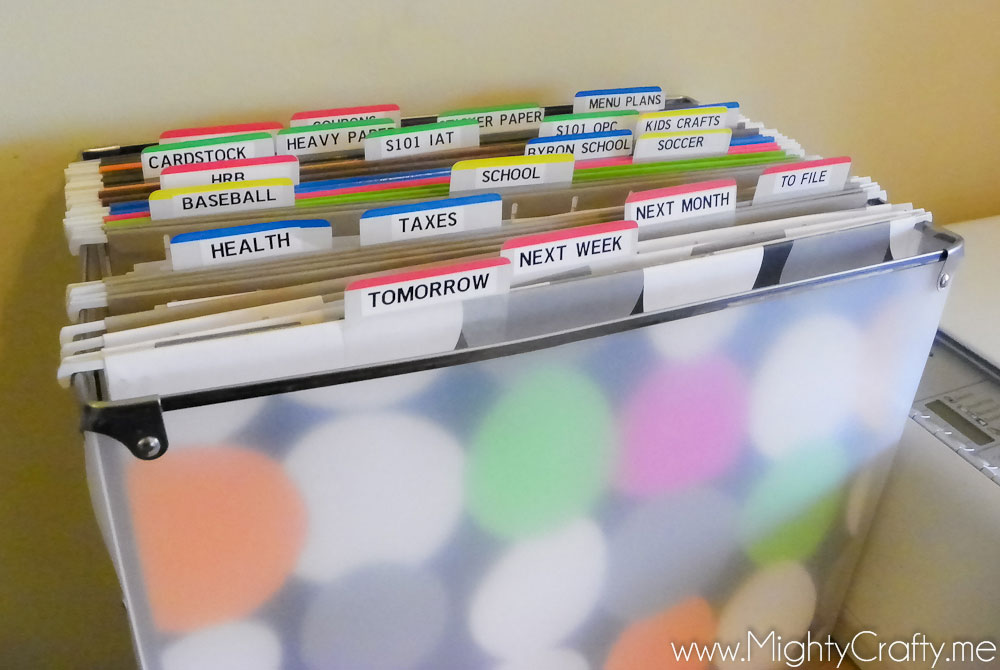Organise UK Household Paperwork Easily and Effectively

Organising UK household paperwork can often feel like a daunting task, especially when you're juggling multiple documents related to bills, insurance, taxes, and more. But fear not! This guide will walk you through the steps to manage your household paperwork efficiently, ensuring you can find any document in no time, keep track of important dates, and maintain a clutter-free environment.
Understanding the Importance of Paperwork Management

Before diving into the practical steps, it's crucial to understand why paperwork management is essential:
- Financial clarity: Proper management helps you track your spending, savings, and financial obligations with ease.
- Time-saving: When documents are organized, finding what you need becomes quick and less stressful.
- Legal compliance: Keeping up with legal documents ensures you are compliant with regulations and deadlines.
- Peace of mind: Knowing where everything is reduces anxiety and provides a sense of control.
Categorising Your Documents

The first step in managing your paperwork effectively is to categorize it. Here’s how to break down your documents:
- Home-related: Mortgage or rent documents, utility bills, warranties, and repair logs.
- Financial: Bank statements, credit card bills, loans, investment documents, and tax records.
- Personal: Birth certificates, passports, medical records, wills, and insurance policies.
- Vehicle: MOT certificates, insurance, service records, and V5C registration.
- Work: Contracts, payslips, professional development records, and pension details.
Creating an Organised System

Choosing Your Storage

Deciding on the right storage solution:
- Filing cabinets: Best for frequently accessed documents.
- Binders or folders: Good for thematic grouping and portability.
- Boxes or accordion files: Useful for less-frequently accessed documents.
- Digital: Use cloud storage or scanning to reduce physical clutter.
Labeling and Organizing

To enhance efficiency:
- Label each file or folder with clear, descriptive titles.
- Use color coding for quick visual sorting. For example, red for urgent bills, blue for home documents.
- Sort documents within categories by date or alphabetical order.
Steps to Digitize Your Paperwork

📁 Note: Digitizing does not mean throwing away all paper documents. Some documents are required to be kept in paper form for legal purposes.
- Invest in a Scanner or Use Your Smartphone: A dedicated scanner provides better quality, but apps like CamScanner or Microsoft Office Lens can suffice for most purposes.
- Choose Your Storage: Options include cloud services like Google Drive, Dropbox, or local storage on your computer.
- Sort and Label: Organize scanned documents into folders mirroring your physical categories. Use consistent naming conventions.
- Backup: Ensure you have multiple copies (cloud and physical) for safety.
- Secure Access: Password protect sensitive documents or use encryption for added security.
Managing and Updating Your System

Regular maintenance is key to an effective system:
- Monthly Reviews: Go through your documents, file new paperwork, and shred or dispose of obsolete ones.
- Set Reminders: Use your calendar or task management tools to remind you of important dates like bill payments or document renewals.
- Annual Audit: Conduct a yearly review to remove outdated documents, update current ones, and reorganize as necessary.
In managing your UK household paperwork, setting up the right system is only half the battle. Continual management ensures your system remains functional, helping you stay on top of your financial, legal, and personal obligations with minimal stress. Remember, while it can be tempting to go fully digital, certain documents still require physical retention. Your approach should be balanced and tailored to your needs, allowing for both security and accessibility.
This strategy not only saves time but also instills a sense of order and control over the myriad of documents that are part of modern life. When life throws you a curveball, you'll know exactly where to look to find what you need, making paperwork management not just a necessary chore but a proactive part of your life's strategy.
Can I keep all my documents digital?

+
While you can digitize most documents for convenience, some legal documents like wills, passports, and certain financial papers still require physical copies for legal validity or regulatory compliance.
How long should I keep my bills and financial documents?

+
Generally, utility bills should be kept for at least six years for tax purposes. Credit card statements, bank statements, and tax records should also be retained for this period, except in cases where legal disputes arise or specific business practices require longer retention.
What’s the best way to shred confidential documents?

+
Use a cross-cut shredder for maximum security. It cuts documents into small pieces, making reconstruction difficult. Also, consider professional shredding services for bulk destruction or if you’re dealing with highly sensitive information.
How can I make paperwork management a habit?

+
Set reminders on your phone or calendar for regular document review, perhaps once a month. Integrate document sorting into your routine, maybe as part of your weekly planning or after receiving mail. Make it as seamless as possible by setting up a designated time or even using a ‘waiting for shred’ bin.
Are there any tools or software that can help with document management?

+
Yes! Software like Evernote, OneNote, or document management systems like FileCenter can help organize your documents. For financial documents, consider using apps like Money Dashboard or YNAB (You Need a Budget) to track bills and spending. Additionally, many banks provide secure online access to account statements and documents.